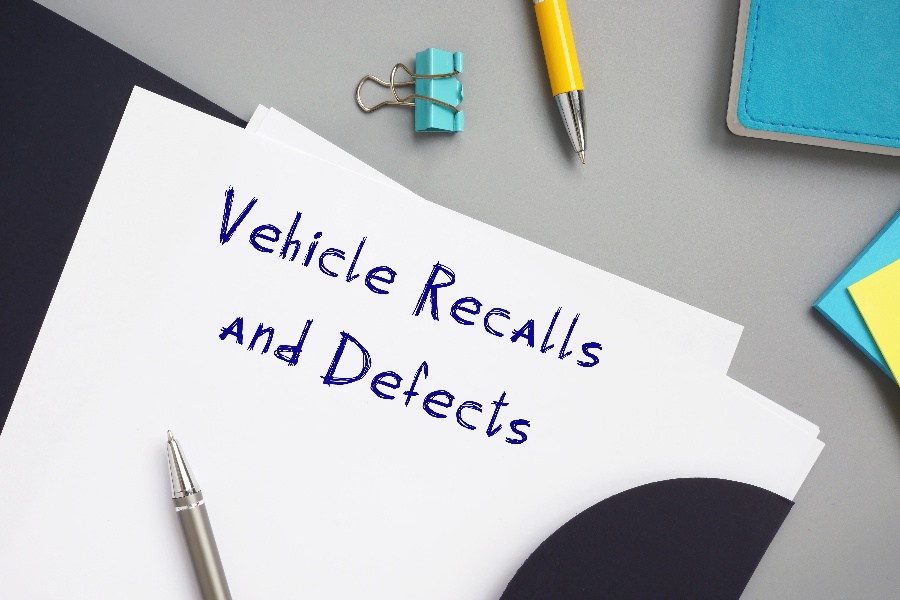
By 2021, 37 deaths were caused by faulty airbags recalled in over three million cars. Earlier, a GM flawed ignition switch caused 124 fatalities. These deaths happened both before and after the recall.
Some contributed to the recall's issue, but many could have been prevented if the vehicle owners had taken their cars in for the dealership recall repairs. It is a tragedy when a faulty part causes an accident, injury, or death, but it is an avoidable tragedy when this happens after the recall is issued.
While most individual vehicle owners do not track recalls, as a rule, a fleet owner has every reason and a finite responsibility to track vehicle recalls - specifically for the vehicle models included in your fleet. With automation tools available today, tracking recalls and receiving alerts if a recall is issued for any of your VINs can practically take care of itself.
Why Every Fleet Should Track Vehicle Recalls
A Risk to Your Drivers
Vehicle recalls are not issued when the seat stitching is loose, they are issued when there is a known safety issue. Often, injuries and fatalities occur before the flaw is fully realized and the recall is issued.
The last thing you want is to ignore a recall and have this cause the injury or death of one of your drivers. Even if the chances are slim, you would repair your engine if you heard an unusual sound just to be safe. For driver safety, recalls are the same as being told there's a flaw you just can't see or hear.
A Risk to Your Business
Accidents are also bad news for your business. No business wants the cost, injuries, and downtime of an accident caused by the recalled part. Accidents are a known risk when one manages vehicles on the road all day, every day, But anything you can do to reduce the percent chance of a problem or crash on the road is a necessary step.
Maintaining Your Insurance Rates
If a recall has a long-term effect on a vehicle's safety, going unrepaired could impact your insurance rates. Taking care of recall repairs promptly can maintain your good insurance rates and avoid the risk of an increase if the recall becomes insurance-calculated.
Every Recall Matters
For small fleets where the downtime of a recall repair is undesirable, it can be tempting to skip repairs on "little" recalls. You might naturally perform repairs on recalled engines or airbags, but windshield wipers or AC may seem less vital - until you need them in driving conditions.
Recalled windshield wipers sound harmless but they become a matter of life and death when your drivers are navigating a freeway in a rainstorm. An AC that malfunctions is not just uncomfortable (bad fleet policy) but could also affect the defrost feature at a critical time - or harbor mold that causes long-term health damage.
Every recall matters because a car is built to provide safety and performance with every feature. When a feature is important and flawed enough to be recalled, the repair is likely important to maintain safety in all road and weather conditions.
Plan Ahead to Minimize the Cost of Repair Downtime
The best thing you can do if vehicles in your fleet have issued recalls is to plan ahead. There will be downtime while the vehicle is in the shop. You may need to transfer team equipment or even secure a temporary vehicle to replace the one that needs recall repairs. Minimize the impact by arranging everything ahead of time. If your biggest cost will be downtime, booking a temporary replacement and scheduling transfer-prep time can reduce or even eliminate that cost.
The good news is that recall repairs are free, so you don't need to pay for the new parts and adjustments - and you will likely get a courtesy inspection while your dealership mechanic is in there. Take this opportunity to do a dealership check-up to maximize the benefit of the interruption to your fleet operations.
Taking Care of Recalls
Recalls are no one's idea of a good time, but those who suffer most are the ones who lose life and limb to an avoidable accident. Use automated tools to monitor recalls of all vehicles with your make-model-year and after-market parts, then take the necessary steps for recall repairs if anything appears on your radar. It could be a matter of life or death.
Contact us today for more fleet management insights or services.








